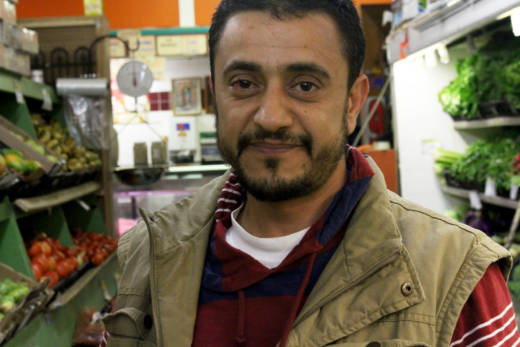Compared with President Trump's two earlier travel bans, the revisions announced Sunday may last a lot longer. They indefinitely restrict most travel into the U.S. for citizens of seven countries -- Chad, Iran, Libya, North Korea, Somalia, Syria and Yemen -- while imposing narrow limits for Venezuela.
Trump's proclamation replaced the six-nation, 90-day travel ban that expired Sunday. That prompted the U.S. Supreme Court to cancel its scheduled hearing on Oct. 10 of oral arguments on the legal challenge to the expired order, but the case is still under review. The court requested legal briefs from both sides by Oct. 5.
Critics say the administration's extension of travel restrictions to Chad, North Korea and Venezuela -- which do not go into effect until Oct. 18 -- failed to rebrand the ban, since most of the countries impacted have majority-Muslim populations.
"This continues to remain a Muslim ban, despite the changes that the administration has made," said Elica Vafaie, an attorney with the Asian Law Caucus in San Francisco. "It's still at its core a Muslim ban. Those discriminatory views are still intact."
Trump's third travel ban is more tailored to each country on the list, with varying degrees of restrictions.
For example, while the issuing of all U.S. visas and green cards is suspended for Syrians, only government officials from Venezuela and their immediate relatives face visa and green card application denials.
According to the president's directive, after Oct. 18 anyone seeking an exception -- even travelers with a credible "bona fide relationship" to people or entities in the U.S. -- will have to apply for a waiver.
Lawful permanent residents of the U.S. and visitors with valid visas are clearly exempted. That is a key difference with the president's first travel ban issued in January. That directive resulted in confusion, massive protests and visa-holding travelers being stopped at airports.
The Trump administration argues the latest revisions come after a careful review of the policies and information-sharing practices of nearly 200 countries, to help ensure potential safety threats are kept out of the U.S.
"If a country knows that a particular person is a terrorist threat or is a public safety threat because of criminal activity, that's information that is useful for the United States before we make decisions about admitting those individuals on visas to our country," said David Lapan, a spokesman for the U.S. Department of Homeland Security.
The countries targeted by the new restrictions can’t or won’t provide enough information for the U.S. to verify the identity of visa applicants, said Lapan.
"The decisions that were made were based on security. It had nothing to do with religion, it had nothing to do with race," he said.
The DHS plans to deliver a report twice a year to assess if any changes to the ban are warranted. The travel restrictions will remain until the governments of the countries listed improve their procedures, said Lapan.
Vafaie said her organization and other civil rights groups are weighing their options to challenge the new rules. Meanwhile, some of her clients face indefinite separation from relatives who are currently applying for U.S. visas.
"We have received several calls from community members being very alarmed that now their spouses and children will not be able to come and unify with them," she said.

